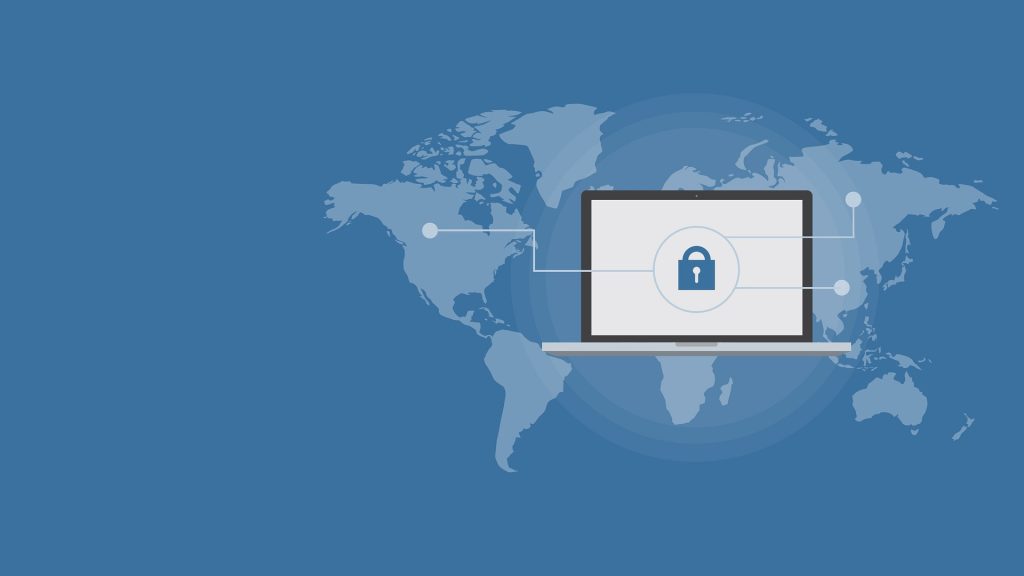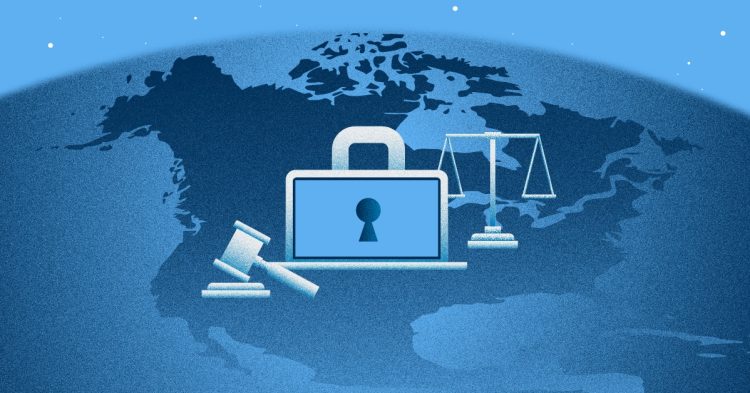In recent years, data privacy has become one of the most important topics globally, with numerous countries and regions recognizing the urgent need to protect personal information. Technological advancements and the growing volume of personal data being processed have prompted governments to take bold steps toward ensuring the privacy and security of their citizens. From Europe’s General Data Protection Regulation (GDPR) to China’s Personal Information Protection Law (PIPL), countries around the world are tightening their privacy laws. This shift marks a turning point in how personal data is treated and has profound implications for businesses, individuals, and governments.
Introduction: The Growing Importance of Data Privacy
The rise of the digital age has transformed virtually every aspect of modern life, from the way we communicate to how we shop, work, and socialize. With the explosion of the Internet of Things (IoT), artificial intelligence (AI), and big data analytics, personal information is increasingly collected, stored, and shared on an unprecedented scale. Yet, this digital transformation has also introduced significant risks to personal privacy, such as identity theft, unauthorized surveillance, and data breaches.
In light of these concerns, the last decade has witnessed a global surge in the enactment of stringent privacy protection regulations. Governments are now placing greater emphasis on safeguarding personal data and holding organizations accountable for how they handle it. This move toward comprehensive privacy laws is reshaping the global landscape of data protection.
The European Union: Leading the Charge with GDPR
The European Union (EU) has been at the forefront of the global privacy movement with the introduction of the General Data Protection Regulation (GDPR) in May 2018. Widely regarded as one of the most comprehensive and far-reaching privacy laws in the world, GDPR has set a high standard for data protection.
GDPR applies to all organizations operating within the EU, as well as any organization outside the EU that processes the personal data of EU residents. It introduces several key principles that have redefined how companies manage customer data:
- Consent: Organizations must obtain explicit consent from individuals before collecting or processing their personal data.
- Transparency: Companies are required to be transparent about how they collect, store, and use personal information.
- Right to Access: Individuals have the right to access their data and request corrections or deletions.
- Data Portability: GDPR enables individuals to transfer their data from one service provider to another seamlessly.
- Accountability: Organizations must demonstrate compliance with GDPR through regular audits and documentation.
Failure to comply with GDPR can result in hefty fines, with penalties reaching up to 4% of a company’s global annual turnover or €20 million (whichever is greater). This regulation has had a profound impact on global privacy standards and has inspired other regions to enact similar measures.
China: PIPL and the Emergence of Stronger Data Protection
In 2021, China introduced the Personal Information Protection Law (PIPL), which is often compared to the GDPR due to its strict provisions on data privacy. The PIPL marks a significant shift in China’s approach to personal data protection, signaling the country’s commitment to safeguarding citizens’ privacy rights in the face of rapid technological growth.
The PIPL shares several similarities with the GDPR, including:
- Consent and Transparency: Just like GDPR, the PIPL requires businesses to obtain explicit consent from individuals before collecting personal data and mandates that they inform users about the purpose of data collection.
- Rights of Data Subjects: Under the PIPL, individuals have the right to access, correct, and delete their personal data, and they can also withdraw their consent at any time.
- Cross-border Data Transfers: The law imposes strict requirements on international data transfers, ensuring that data exported from China is subject to equivalent protection as domestic data.
One notable difference between the GDPR and the PIPL is the scope of enforcement. The PIPL applies not only to businesses operating within China but also to foreign companies that process data related to Chinese citizens. Additionally, the law outlines substantial fines for non-compliance, ranging up to 5% of an organization’s annual revenue.
The implementation of PIPL is part of a broader trend in China to regulate the digital economy, which includes other measures such as the Data Security Law (DSL) and the Cybersecurity Law. Together, these laws are helping China establish a more robust framework for personal data protection.
United States: Fragmented Approach and the Need for Federal Regulation
In contrast to the EU and China, the United States has taken a more fragmented approach to data privacy. While some states have implemented robust privacy laws, such as the California Consumer Privacy Act (CCPA), there is no comprehensive federal privacy regulation at the national level.
The CCPA, enacted in 2020, is the most notable privacy law in the U.S. and provides California residents with several rights regarding their personal data, including the right to know what data is being collected, the right to opt-out of the sale of their data, and the right to request the deletion of their data. It also holds companies accountable for how they handle personal information and mandates strict reporting on data breaches.
However, the lack of a unified federal law means that privacy regulations in the U.S. vary widely from state to state. Some states, like Virginia and Colorado, have enacted their own privacy laws, but there is a growing consensus that a national framework is needed to ensure consistency and effectiveness.
There are ongoing discussions in Congress about the possibility of passing a federal privacy law, and in recent years, there has been increased pressure on lawmakers to act. Proposals for a federal privacy law, such as the American Data Privacy Protection Act (ADPPA), have been introduced, but there is still no clear timeline for its passage.
Other Regions: A Global Push for Privacy Protection
Several other countries and regions are also adopting stronger privacy regulations. For example:
- Brazil: The Lei Geral de Proteção de Dados (LGPD), Brazil’s general data protection law, came into effect in 2020 and is heavily influenced by the GDPR. It grants Brazilian citizens the right to control their personal data and imposes fines on companies that violate data protection principles.
- India: The Personal Data Protection Bill, which is currently under review, is expected to become law soon. The bill is designed to regulate how personal data is collected, processed, and stored and emphasizes the protection of sensitive data.
- Canada: Canada’s Personal Information Protection and Electronic Documents Act (PIPEDA) governs data protection and privacy in the private sector. The country is also exploring new regulations to align with international privacy standards.
The global trend toward stricter privacy regulations reflects the growing recognition that personal data is a valuable and vulnerable asset that must be protected. As countries continue to implement and refine their data protection laws, businesses and individuals alike must adapt to this changing regulatory environment.

The Impact on Businesses and Consumers
The implementation of strict privacy protection regulations has far-reaching implications for both businesses and consumers.
For businesses, compliance with privacy laws is not just a legal obligation but also an opportunity to build trust with customers. Companies that are transparent about their data practices and prioritize privacy are likely to attract and retain more customers. On the other hand, failure to comply with data privacy laws can result in significant financial penalties, reputational damage, and loss of consumer confidence.
For consumers, the growing focus on data privacy means greater control over personal information. With more stringent laws in place, individuals can expect to have more transparency and control over how their data is used. They can also hold businesses accountable if their data is mishandled or if their privacy rights are violated.
However, the burden of navigating these complex privacy regulations often falls on businesses, which must invest in compliance programs, data protection measures, and regular audits. As privacy laws continue to evolve, businesses will need to stay agile and ensure that their data handling practices remain in line with the latest legal requirements.
Challenges and the Future of Privacy Protection
Despite the positive strides made in data protection, challenges remain. One of the most significant hurdles is ensuring that privacy regulations keep pace with the rapid evolution of technology. For example, as artificial intelligence, machine learning, and blockchain technologies become more prevalent, questions around data ownership, algorithmic transparency, and the ethical use of data are becoming increasingly complex.
Moreover, enforcement of privacy laws across borders can be difficult, particularly when data is transferred between countries with different legal frameworks. While international cooperation on data protection is growing, there is still a need for greater harmonization of privacy laws to ensure consistency and effectiveness.
As we look to the future, it is clear that privacy protection will remain a top priority for governments worldwide. The ongoing development of regulations such as the European Digital Services Act (DSA), the U.S. ADPPA, and various national laws indicates a continued global effort to strengthen privacy rights and protect personal data.
Conclusion: A New Era of Privacy Protection
The implementation of strict privacy protection regulations across multiple countries and regions represents a fundamental shift in the way personal data is handled. From the GDPR in Europe to the PIPL in China, countries are taking bold steps to safeguard individuals’ privacy in the digital age. As the global landscape continues to evolve, businesses and consumers must adapt to the changing regulatory environment.
Ultimately, the move toward stronger privacy protection is not just about compliance—it is about building trust, ensuring transparency, and empowering individuals to take control of their personal data in an increasingly interconnected world. As privacy regulations continue to shape the future of data protection, they will play a crucial role in fostering a more secure and trustworthy digital ecosystem.











































